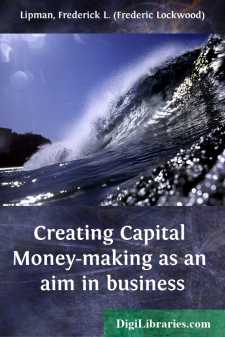Categories
- Antiques & Collectibles 13
- Architecture 36
- Art 48
- Bibles 22
- Biography & Autobiography 813
- Body, Mind & Spirit 142
- Business & Economics 28
- Children's Books 15
- Children's Fiction 12
- Computers 4
- Cooking 94
- Crafts & Hobbies 4
- Drama 346
- Education 46
- Family & Relationships 57
- Fiction 11828
- Games 19
- Gardening 17
- Health & Fitness 34
- History 1377
- House & Home 1
- Humor 147
- Juvenile Fiction 1873
- Juvenile Nonfiction 202
- Language Arts & Disciplines 88
- Law 16
- Literary Collections 686
- Literary Criticism 179
- Mathematics 13
- Medical 41
- Music 40
- Nature 179
- Non-Classifiable 1768
- Performing Arts 7
- Periodicals 1453
- Philosophy 64
- Photography 2
- Poetry 896
- Political Science 203
- Psychology 42
- Reference 154
- Religion 513
- Science 126
- Self-Help 84
- Social Science 81
- Sports & Recreation 34
- Study Aids 3
- Technology & Engineering 59
- Transportation 23
- Travel 463
- True Crime 29
Morals in Trade and Commerce
Categories:
Description:
Excerpt
MORALS IN TRADE AND COMMERCE
The most beautiful thing about youth is its power and eagerness to make ideals, and he is unfortunate who goes out into the world without some picture of services to be rendered, or of a goal to be attained. There are very few of us who, at some time or another, have not cherished these ideals, perhaps secretly and half ashamed as though to us alone had come an inspiration of a career that should touch the pulses of the world and leave it better than we found it. And in the making of youthful ideals we have changed very little with the passage of the centuries. The character of the ideals has changed with changing needs, but not we ourselves. Our young men still see visions; they still fill the future with conflict and with struggle and prospectively live out their lives with the crown of achievement in the distance. It is well that it should be so. The ideals of our youth are the motive-power of our lives, and even those of us who have lived far into the eras of disappointment would not willingly wipe from our memories even the most extravagant day dreams from which we drew energy and hope and fortitude and self-reliance.
If ideals have such a power over our lives, if they energize and direct our first entry into the world of affairs—as unquestionably they do—they must be counted among the real forces of the day and as such they are as much a matter for our scrutiny and control as educational development or physical perfection. Not, perhaps, in the same way, for our ideals belong to that private domain wherein we rightly resent either dictation or authority from the outside. But we can apply both dictation and authority for ourselves. With a firm determination to be upon the right side of the great issues of the day, to uphold honor and justice in public affairs, to uproot the tares and to sow the wheat in the domain of national business, we can apply our whole mental strength to a proper determination of those issues, to a correct distribution of praise and blame, to a careful adjustment of the means to the end and to a precise appreciation of the facts. We can satisfy ourselves that we have heard both sides and that enthusiasm has not deadened our ears to all appeals but the most noisy. We can see to it that our attitude is the judicial one and that our minds are so fixed upon the truth and upon the whole truth that there is no room for prejudice or for passion. All these things can be reared as a superstructure upon the groundwork of lofty ideals, for just as there can be no progress without ideals so there can come nothing but calamity from ideals that are not guided by reflection and by knowledge.
Never before has it been so hard to know the facts as it is to-day. If we must give credit to the press for the diffusion of knowledge so also must we recognize its equal power to diffuse prejudice and bias. The newspaper and the magazine of to-day are vast and intricate machines that supply the great majority of us with practically all the data upon which we base our judgments....












